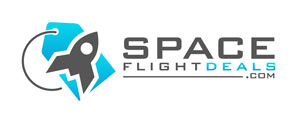Space tourism reaches the launch pad at last
After what seems like decades of PR bluster and over optimistic announcements, the phoney war is finally over. The summer of 2021 is the time when the commercial space tourism industry finally reaches the launch pad.
In a replica of the Soviet Union and the United States’ ‘Race to the Moon’ in the 1960s, commercial organisations like Elon Musk’s SpaceX, Jeff Bezos’s Blue Origin and Sir Richard Branson’s Virgin Galactic have been engaged in a battle to be the first to carry paying passengers into space on a regular basis.
SpaceX have already won the race to be first commercial company to launch humans into space. They have already sent a number of people to the International Space Station (ISS), but these were state sponsored astronauts. Elon Musk has decided to focus on co-operating with NASA on trips to the ISS and deep space missions to the Moon and Mars, rather than on space tourism. This has left the race to be the first to operate scheduled commercial trips to the remaining pair of combatants.
For some time now, it has appeared that Blue Origin would be the victor. Virgin Galactic have suffered a number of setbacks, not least the loss of its VSS Enterprise spaceplane and pilot during a test flight in 2014.
This impression seemed to be confirmed when Bezos announced in June 2021 that he would be taking a seat on the first passenger carrying flight of his New Shepard rocket the following month. Scheduled for July 20th, this auspicious date marks the 52nd anniversary of the Apollo 11 Moon landing. Further announcements confirmed his fellow passengers as his brother Mark and a publicity shy winner of an online auction, who paid $28 million (£20m) for a ticket.
The final seat goes to a veteran of the NASA space programme who never made it to space. Wally Funk, now 82, will become the oldest person to ever fly in space, having been a member of NASA’s original ‘Mercury 13’, an elite corps of trainee women astronauts set up in the 1960s but later disbanded. “No one has waited longer” quipped Bezos as the announcement was made.
In a move surely designed to tweak the nose of his rival, Ms Funk had already paid $200,000 for a ticket with Virgin Galactic, so Bezos was effectively stealing one of Branson’s customers. As ever with the irrepressible Branson though, it seems that he may have the last word…
This is because things have also been moving rapidly in Virgin Galactic’s spectacular Spaceport America, located in the desert of New Mexico. Friday 25th June saw the company finally receive clearance from the US Federal Aviation Administration (FAA) to fly into space. The new licence upgrades Branson’s previous permissions, which only allowed test flights. This is excellent news for the more than six hundred passengers who have already paid for their tickets, and follows the successful crewed test flight of VSS Unity in May.
But even more spectacular news was to come as Sir Richard announced plans to upstage his American rival by beating Bezos into space. 11th July is the planned launch date, pre-empting Bezos’s New Shepard launch by nine days, if it goes ahead as planned. Branson himself will be on board, together with three other company employees and two pilots.
Yet whoever wins the race in the end it is really just the first step, heralding the beginning of a spectacular new era in space travel. Blue Origin, SpaceX and Virgin Galactic are just the most famous of the many companies vying to put commercial passengers into space. There are many more. These include Space Perspective, who are offering six hour balloon flights to space. The company successfully launched their first test flight in June 2021. They have already sold over three hundred tickets and plan their first passenger carrying trips to space in 2024.
There is also Axiom Space, who plan to launch their private space station, also in 2024. This will be both a space laboratory, available for hire by commercial companies and also hotel, providing accommodation for tourists.
So at long last, the prolonged period of PR puffery is coming to an end. Paying passengers really are about to finally reach their promised destination. OK, the cost is affordable only to the very wealthy, for now. But prices will come down as more and more companies launch competing services. How long before you too, can plan for your trip to the blackness of space?
